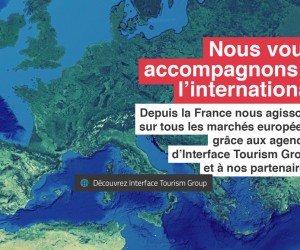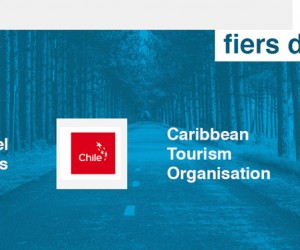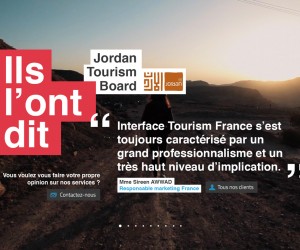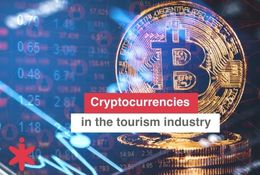They’re here to stay Objective: target the millennials
They’re here to stay Objective: target the millennials

Europe’s Tourism SMEs are getting smarter
24/04/2017
Family Tourism, a rising segment
07/06/2017They’re here to stay Objective: target the millennials

Throughout the decades there has always been a tendency to name and catalogue the generations, distinguishing what sets them apart from others and what unites them to each other, as a way of interpreting and understanding the behaviors and similar actions of these groups. And today, millennials are the protagonists of our time, and as such, drivers of change in many sectors, including tourism. It is the generation born between 1980 and 2000, approximately, which is betting on new forms of consumption and opts, mainly, for web platforms to organize their trips.
But what makes the millennials different, what makes them the talk of the town? In Spain, they are a generation of more than nine and a half million people, according to the National Institute of Statistics (INE). They say that they are the generation of “me, me, me”, of wanting everything and wanting it now. And if we had to choose a word that defined them, that would be immediacy. Here and now.
We can start by saying that their main common denominator is that they travel “with information on their backpacks”. They are young people born at a time of profound changes in the society, with globalization and massive access to technology, who became adults at the turn of the millennium and who connect in real time, in search of immediate answers.
It is the largest demographic group since the days of the boomers, and, as it cannot be otherwise, they are increasingly influencing the travel industry. Therefore, if we want to talk about communication and strategy focused on tourism, it is a niche that we have to understand in order to reach it. The ability to being able to adapt to this segment will be crucial for tourism companies that have this type of travelers among their main target audiences.
Millennials is just one of many names given to this generation also known as Generation Y or Echo Boomers. A name that was assimilated by the media after the publication of the book Millennials Rising: the next great generation in the year 2000 by the American sociologists Howe and Strauss.
And why are they so important? According to the consulting firm Deloitte, in 2025, they will make 75% of the world’s labor force and in 2017 it is estimated that 50% of the global consumption will fall on them.
Millennials are, therefore, the future generation of consumers and users, a key target with new characteristics, needs and demands that it is necessary to know because of the transformations they are generating, also in tourism.
And among these new transformations we emphasize that, according to a study carried out by Telefónica, the media hardly influences them (20%, to those who does impact), not to mention the political forces whose percentage is only 10%. Most young people spend much of their time consuming culture (83%), practicing sports (66%) and traveling (65%).
In this dynamic, the most commonly used device is the smartphone. In Spain, according to the same report prepared by Telefónica, they spend about 6 hours a day being online.
What trends do we have to take into account when it comes to impacting this generation?
- They are digital natives and, therefore, prefer internet to conventional television. 59% watch movies online and 46% watch television shows, but also over the internet.
Several international studies highlight some of the preferences these young people have when traveling. The first, we reiterate, is the internet, through which they have access to more competitive prices. Although for the rest of the travelers it is not so essential, for millennials, being always connected to smartphones is a must. That is why internet connection is the first of the free services they value, 74% per cent of them. According to TripAdvisor data, 77% of millennials decide based on the free services offered by the hotel. Wi-Fi is followed by breakfast (60%) or airport transfer (58%).
- Informed, committed and critical. This generation of youngsters looks for offers, compares and decides. It has an average of 5 internet searches before traveling and at least 3 web pages visited.
And the thing is that 6 out of 10 millennials prefer to spend money on travels than material goods, according to a study by MMGY Global. That is, most of them favor investments in experiences.
- Customization. The key for tourism companies will be to anticipate those needs. The need to travel in a personalized and differentiated way. To get to that, you have to know this segment well, what do they like? What motivates them? What inspires them? And the data precisely demonstrates how this personalization stands out: almost 70% of the millennials are going to plan a personalized and exclusive travel experience when buying an already designed trip. However, 58.7% of millennials would pick a package if it were less expensive.
According to new data published by The American Express on the future of travel and expenditure, millennials are more optimistic and plan to travel more frequently (52.8% vs. 32.1% of boomers) in the next five years and spend more on travel than boomers (58% vs. 41.3% of boomers) over the same period of time.
- Multi-screen and multi-device. This generation spends much of its time being connected through five different types of screens: smartphone, television, laptop, desktop computer and tablets. It is important to consider the distribution of the product through all types of devices.
- Social and connected. When asked which social network to use most daily, Whatsapp is the clear winner with 95%, followed by Facebook (65%) and YouTube (44%), according to the Cambridge University Press study conducted in Spain.
More than half (54.9%) feel it is their responsibility to publish content for the benefit of other travelers, and more than a quarter (25.8%) feel that they spend too much time on social networks during the trip.
“They grew up with the fall of the Berlin Wall, the death of Kurt Cobain, the Kosovo War, the Olympics of ’92, Dragon Ball, A-Team, Game Boy, Messenger; they had to wait to turn 16 so their parents would let them have a mobile phone, they were the first to open an email account and today they are the largest generation on Facebook, Twitter and Instagram” wrote Emailing Network about the millennials. And yes, it seems that we have arrived to stay and also, why not, to break all the categorizations that are made about us.
By Laura Chaves, Account Executive Interface Tourism Spain


 All the news
All the news  Back to newsroom
Back to newsroom






